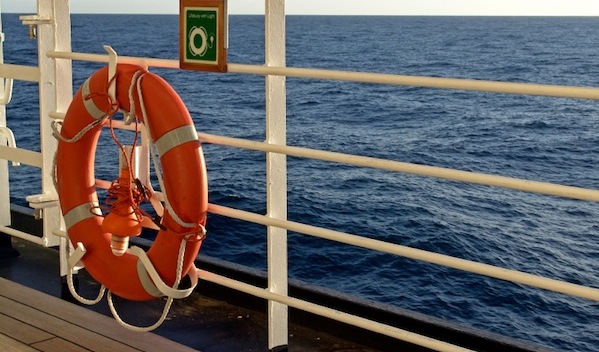CHIRP highlights safety in exposed places
CHIRP actively encourages seafarers to maximise the number of reports of incidents and near misses. Its bulletins mainly comprise reports from the commercial industry, but the latest issue concerns a superyacht.…
The Confidential Reporting Programme for Aviation and Maritime (CHIRP) actively encourages seafarers to maximise the number of reports of incidents and near misses, thereby encouraging the sharing of lessons to be learnt. Their bulletins mainly comprise reports from the commercial industry, but the latest issue concerns a commercial yacht of 2000gt.
The yacht in question’s tender was to be moved away while the yacht shifted her anchorage berth after a deterioration in the weather. The chief mate decided to move the tender himself and boarded without a lifejacket. A crewmember noticed the error, and a lifejacket was then worn; but not before the chief mate had boarded the tender in big swell and force six wind.
Extracts from the information passed on to CHIRP gave further details of the incident. “While the vessel was at anchor, the decision was made to move to a different anchorage around the headland,” the report explains. “Before we could move, the tender that was located at the stern needed to be moved alongside so that it could be boarded and moved away whilst the vessel hauled anchor. Four crew were present for the task to be completed and the chief mate explained what we were going to do.
“Once the tender was alongside, the chief mate decided that he would board the tender and move away. The pilot ladder was to be used for boarding on the starboard side. The chief mate forgot to put on a lifejacket whilst he was holding on the pilot ladder waiting to board the tender, which was riding up and down these 1.5 to 2m waves. Once on board the tender, one of the deck crew shouted to him that he needed a lifejacket in the tender in this swell. One of the lifejackets located in the tender was used during the short passage around the headland.”
"Many accidents and near misses at sea could be avoided by acting early."
CHIRP analyses the report for lessons to be learnt: “This incident arose from a need to shift berth in worsening weather; it may well be that it would have never occurred if the move had been done earlier. Equally it may be that, when the need arose, there was urgency and limited time for planning. Thus the mate, perhaps lacking a spare hand while the yacht weighed, felt he needed to move the tender away himself. There is a sense of rush; the tender must have been moving fairly heavily against the yacht, but the chief mate boarded without his lifejacket. This was certainly hazardous – a procedure should be in place.”
On the other hand, CHIRP notes that there are signs of a positive safety culture in this account. A crewmember felt confident enough to alert the chief mate, pointing out his error, and the chief mate responded. If there had been a generally lax culture, it may well be that neither would have happened.
“Act early in unexpected circumstances or worsening conditions,” CHIRP suggests. “Most seafarers have slowed down too late in worsening weather, pressed on when he or she shouldn’t have, weighed too late as an anchorage starts to become untenable, or (on a sailing boat) reefed too late. Many accidents and near misses at sea could be avoided by acting early. This does three things: a) it allows time for considered planning and execution without rush; b) it avoids the need to cut corners; and c) it minimises the need to do things in marginal or dangerous conditions.
“If urgent or emergency actions must be taken, keep cool, remember drills, and apply safety procedures. In other words, even in difficult conditions, proceed deliberately to the maximum extent possible. There is a clear sign of a positive safety culture in this vessel, even if an initial mistake was made. Culture comes from the top; if standards are reviewed, explained, and followed as a matter of course throughout a vessel, they will be maintained and respected. The opposite is also true: if the ‘don’t bother about that’ culture is tolerated for a moment by the leadership, it will become the norm. The UK COSWP for Merchant Seafarers 2015 is crucial and readable on this vital subject.”
Please note this is an edited version of the CHIRP report. To read about the incident in full, please click here for the latest CHIRP bulletin.
Click here to become part of The Superyacht Group community, and join us in our mission to make this industry accessible to all, and prosperous for the long-term. We are offering access to the superyacht industry’s most comprehensive and longstanding archive of business-critical information, as well as a comprehensive, real-time superyacht fleet database, for just £10 per month, because we are One Industry with One Mission. Sign up here.




